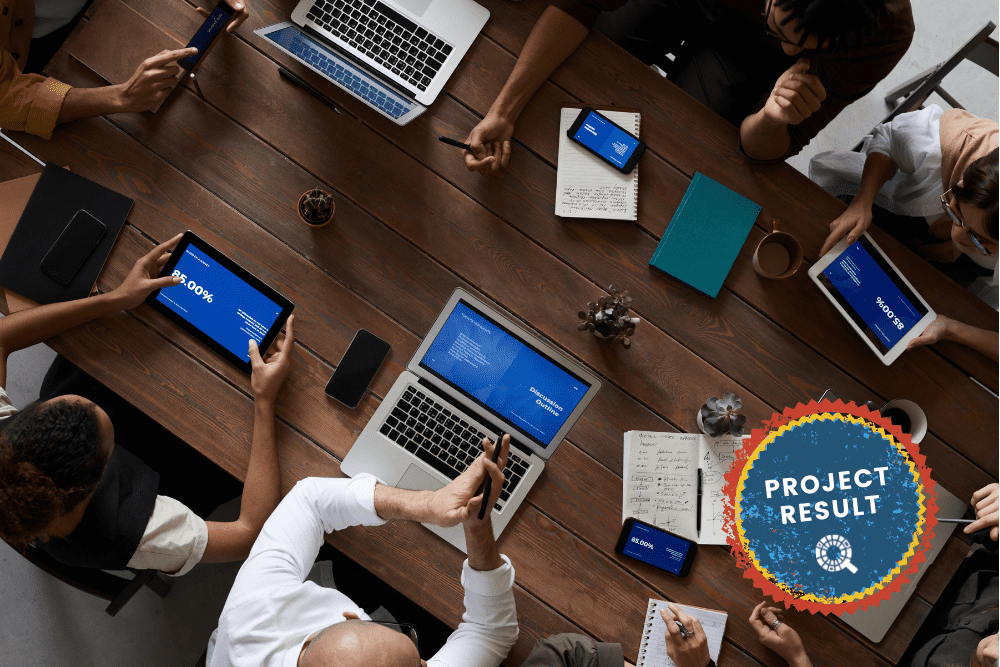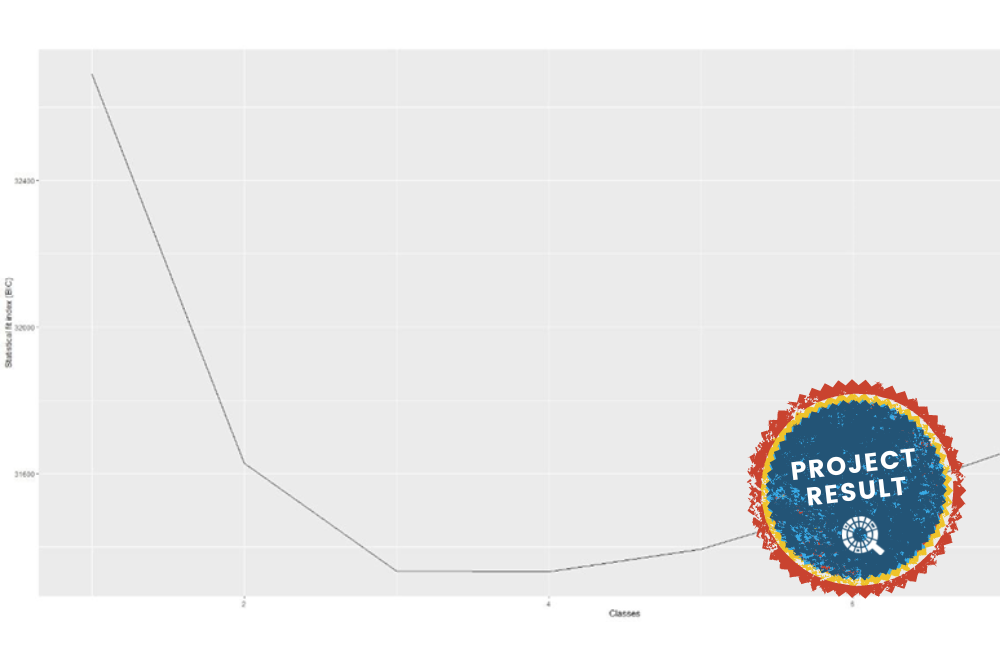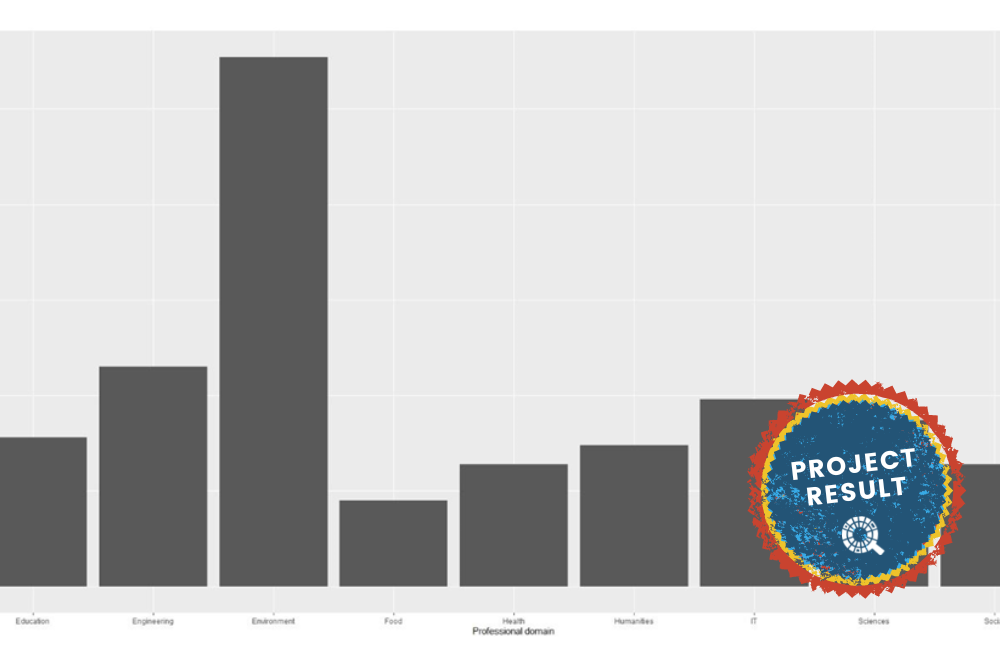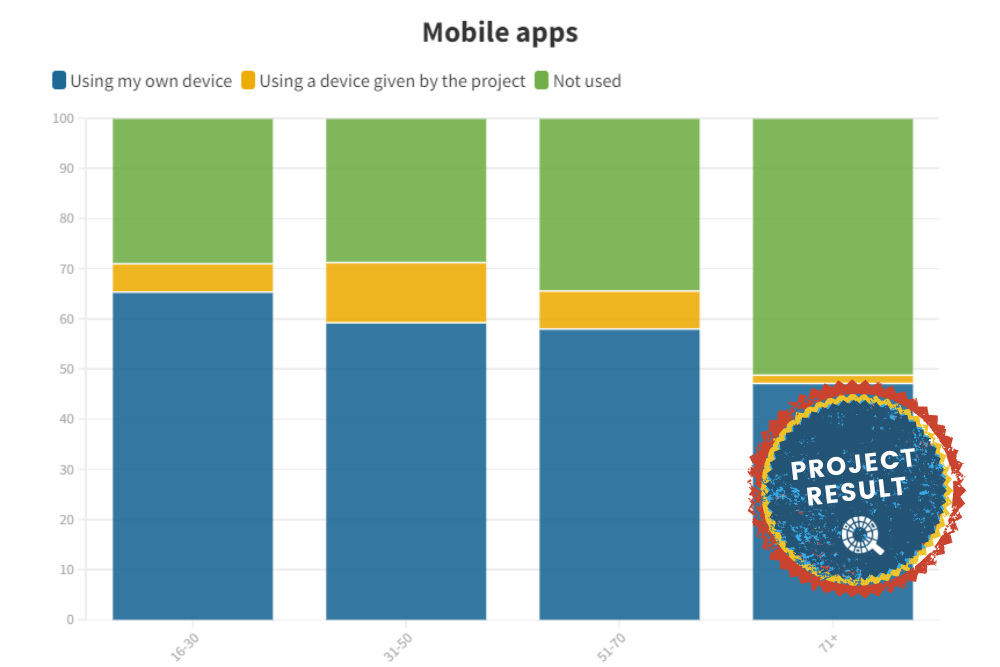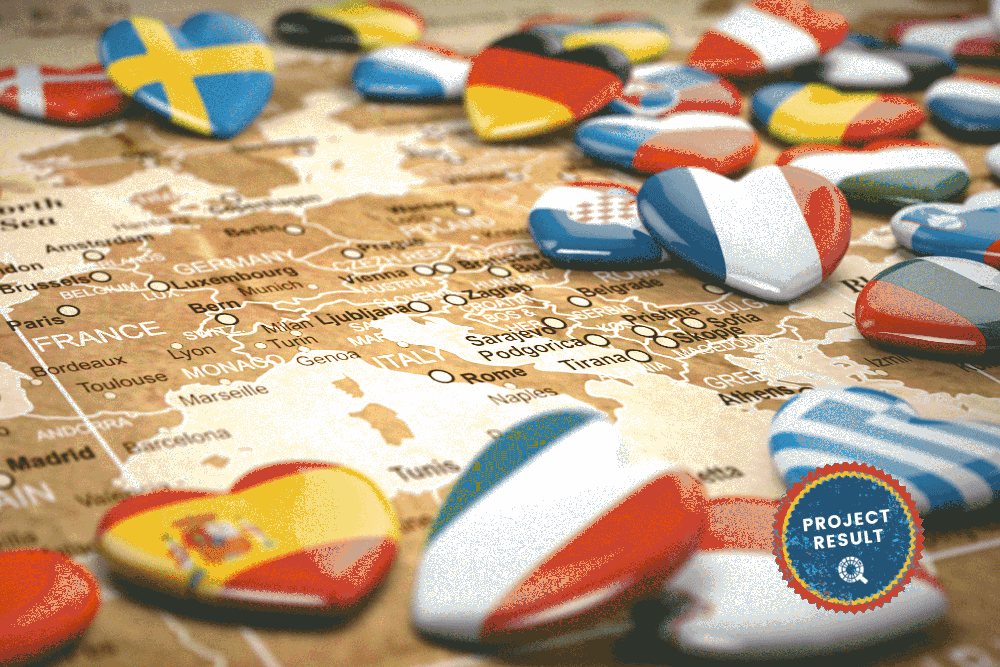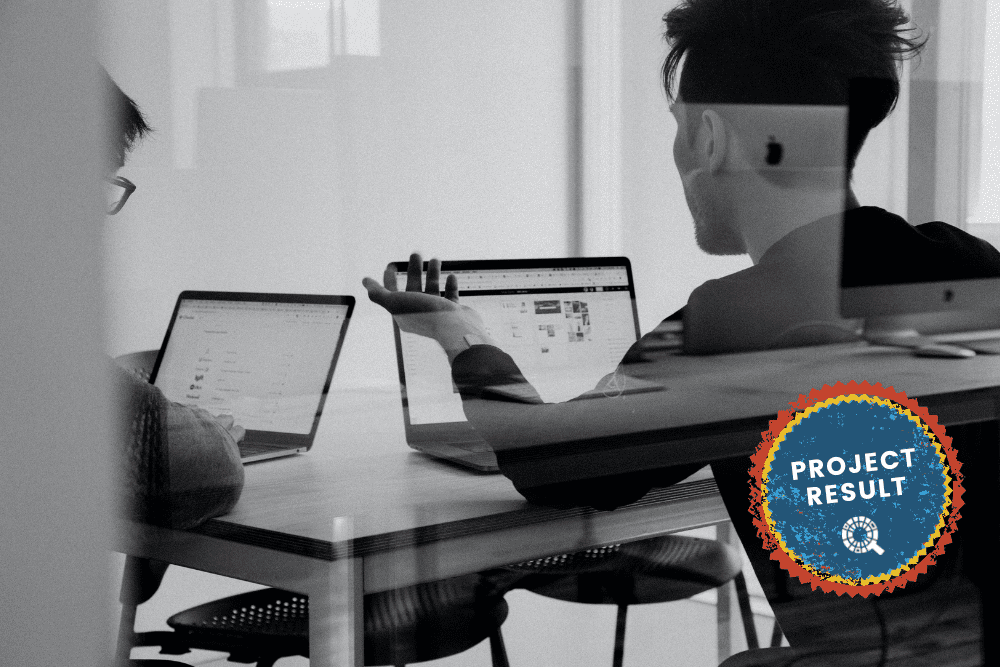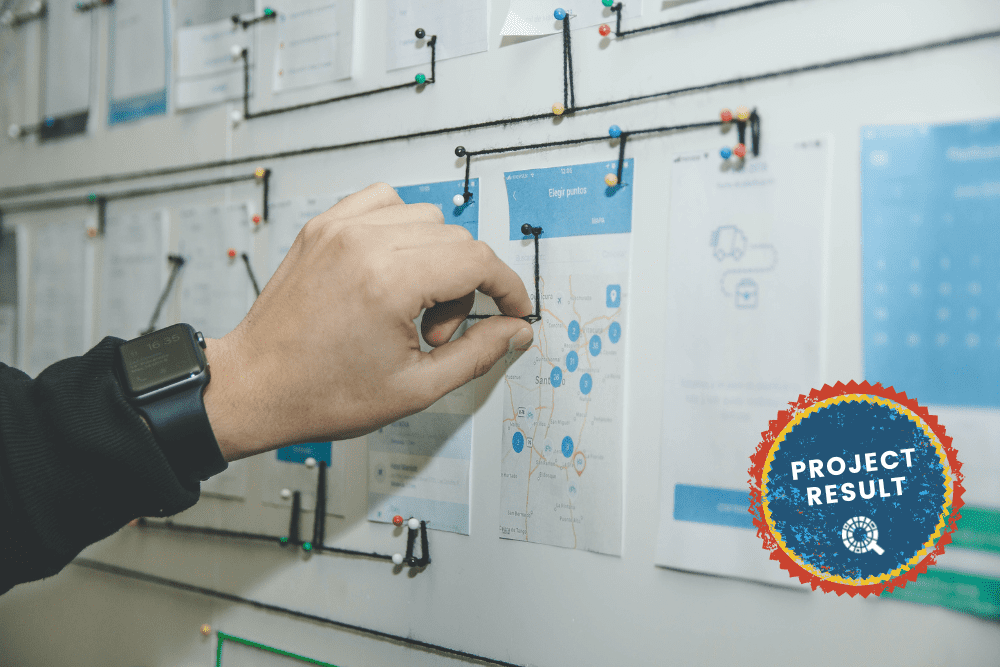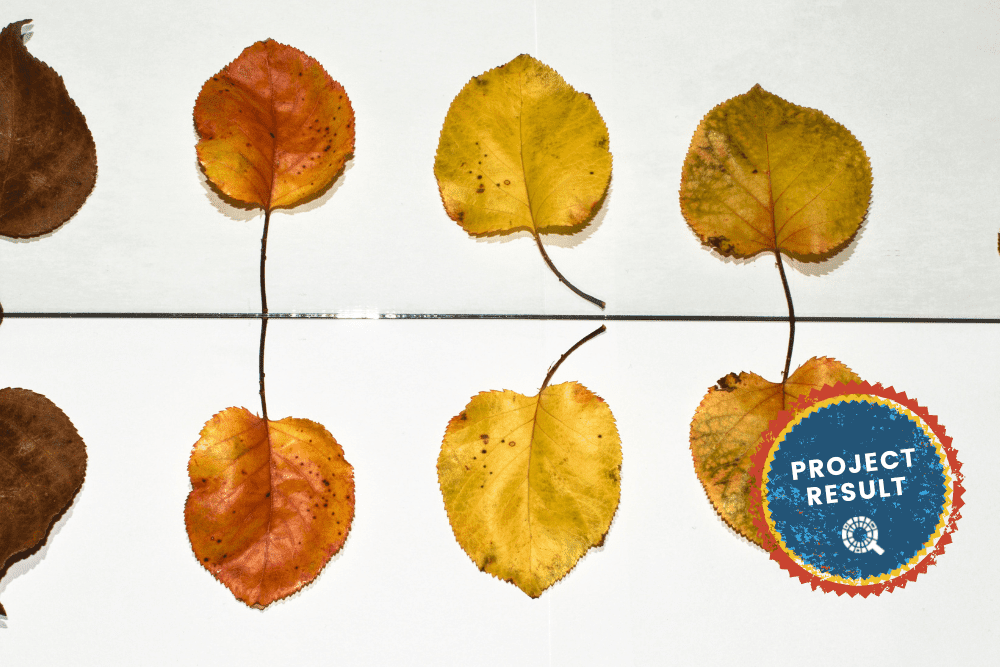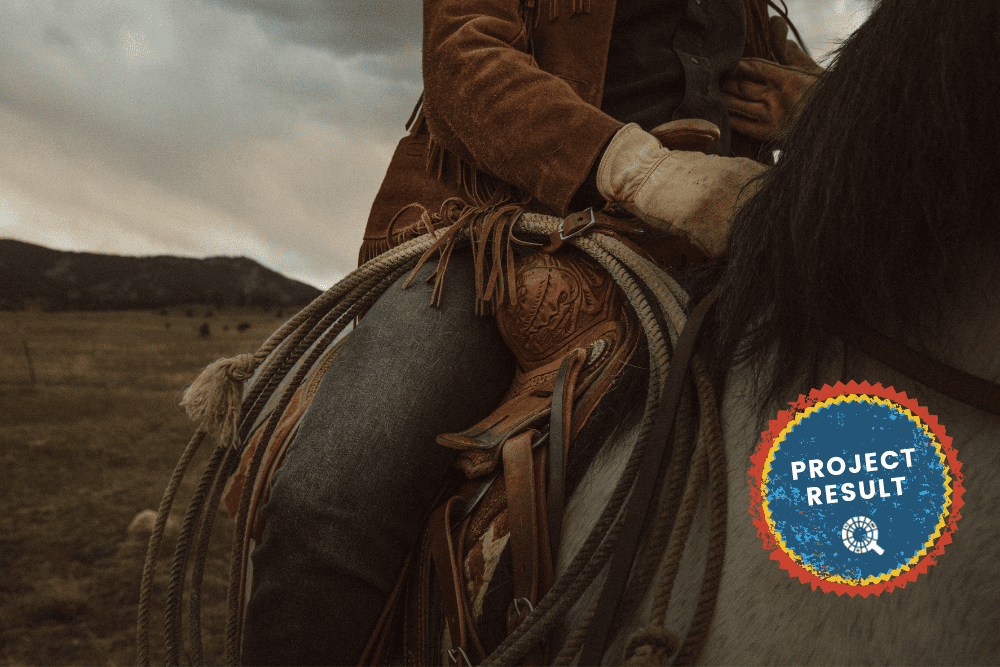In order to better tailor our work to the needs of our different stakeholders, the CS Track team led a series of focus group discussions in September. These focus groups directly involved over 30 people coming from different stakeholder communities including policy-makers and officers, platform and support agency representatives, people interested in CS from an educational perspective and CS project leaders, participants and researchers. The purpose of these focus groups was to assess the extent to which both the content and the format of the communication efforts led by URJC and ATiT in CS Track met the needs and expectations of our target stakeholder groups. The opinions shared during this process and the impact they had on shaping our communications work going forward is worth sharing with the wider community as the points raised are relevant for many other initiatives and projects.
In general, where participants already had contact with the CS Track project, they were positive about our communications and dissemination work, seeing it as making a valuable contribution to the overall body of knowledge about Citizen Science. Where participants were ‘meeting’ us for the first time, they seemed interested and stated they would sign up to our different channels and keep us informed about relevant developments in the future.
Furthermore, there was a difference in terms of expectations depending on the amount of time members of the participant group had been engaged with CS. We noticed that relative newcomers asked more for sharing experiences, directions to publications, definitions and structures while those with more experience looked for information on sustainability models and evidence of impact.
The timing of this exercise was important. In our planning, we already foresaw that there would be a need to adjust our communications strategy according as significant outputs began to emerge through the CS Track research activities. While we already had a very good grasp of what it was our stakeholders expected from the project, it was important at the midway stage to make this more concrete and to adjust both our approach and channels accordingly. While this dialogue is ongoing, the concrete steps of first engaging with an External Advisory Board (insert link) and then setting up these focus groups has helped to shape our strategy to provide a better fit with stakeholders’ expectations.
Structure of Focus group discussions
In order to prepare for the meeting, we asked participants to complete a short 15 minute questionnaire beforehand. This questionnaire included questions about the different channels we use and our website. Each 90 minute focus group discussion was divided into 2 parts, each lasting 45 minutes. First of all, we focused on the different categories of insights that we are working on providing related to citizen science and secondly, the means by which we are working to share our insights with our target stakeholder communities.
We started the first part of the discussion by asking participants to rank in terms of importance a number of sample research questions that the CS Track research team are working on (examples Figure 1 and Figure 2), in total we prepared 2 ranking exercises for each focus group.
Figure 1.
Figure 2.
Ranking in terms of importance was sometimes frustrating for participants as they found all aspects useful, so this aspect worked better as a device to encourage engagement and discussion rather than for the results per se, which was, in fact, its main purpose.
The second part included a usability test, people were also sent a survey prior to the event that contained questions about the CS Track website and different channels we use to promote and distribute the research outputs of our team and others.
Insights for specific groups
When discussing the various insights that the project plans to deliver, certain specific outcomes were considered more important than others in the different focus groups.
For policy-makers a key outcome of our work is argumentation and evidence (data and numbers) that highlight the specific unique value CS can bring including how data collected in CS projects can make a contribution to decision-making.
Platforms and support organisations were keen to have more on demographics, motivation drivers and blockers, empowerment and engagement strategies. For them, it is important to take into account the fact that motivation can change over time. They also identify funding as a major topic of interest so whatever the project can identify in terms of effective funding models would be welcome. They were also keen on this aspect as it impacts naturally on sustainability. This aspect came back with the educational group too, they were also very interested in scaling models which are connected to the funding aspect.
For those coming more from the educational side, pointers included making sure our research focussed on the experiences and expectations of citizen scientists themselves, also the request to highlight ways in which teachers can introduce CS in classrooms. They are also keen on having made visible through our work the different ways in which CS projects are designed and realised in order to know better what works well in different settings. They also want to know more about how to embed the educational aspect generally into CS projects.
Feedback across the different groups
The following topics and pointers came back in several groups and so have been grouped into broad categories where possible.
About Models, Frameworks and Definitions
Information on replicable models is very important for many members of our target groups as sustainability is seen by many as a significant challenge. Moreover, it was unilaterally agreed that a support framework for developing CS would be useful for policy makers and researchers. When it comes to defining citizen science, it was agreed that strict definitions might not be welcome nor helpful although a common perspective on terminology would be useful.
About Impact and Sustainability of Citizen Science activities
Finding ways to highlight personal stories was seen as useful along with showcases and best practices. This came with recommendations that CS Track should also look more closely at grassroots initiatives including methods that facilitate bottom-up approaches to CS. Top-down vs. bottom-up approaches were highlighted a few times, underscoring the importance of investigating power relations in CS.
Measuring impact continues to be a key theme for many across the different target groups – it is connected with gathering evidence but also in a deeper discussion about what constitutes impact. Participants also wanted to know more about what can be gathered and shared about the factors and characteristics that are attributed to so-called ‘successful’ CS projects?
Background is also highly influential on what participants viewed as being a barrier, which although to be expected, needs to be taken into account in our work when it comes to selection of outcomes and recommendations.
About gaps that were considered worth taking into account
Even though we might not be able to cover all the research gaps in the work that we set out to do, we thought it would be useful to ask our stakeholders where, in their opinion, the gaps lie. The following gaps were the ones most spoken about during our discussions:
- Research that puts a stronger focus on the value of diversity in CS
- Research into how open science and CS contributes to lifelong learning
- Research on new and emerging topics in CS projects
- Research into how best to characterise successful CS projects
- Research into a perceived lack of institutional knowledge about CS
Feedback on CS Track communication channels
We also used these focus groups as an opportunity to gather feedback to the process we had planned to adjust the different communication channels that the project team have put in place in the second phase of the project to support the availability of significant research outputs emerging from our work.
We first asked participants to rank how often they use different channels in general and found that Twitter and blogs are visited daily by some of our participants and most found them both to be very useful in keeping up to date with different projects. Some participants who don’t use Twitter indicated that they visit LinkedIn on a daily basis. We also noted that Facebook is not a popular channel amongst our target stakeholders.
Usage frequency.
In terms of the different types of content provided in our channels, participants in all groups agreed that different types of content (short notices, news items, longer articles as well as in-depth content) were important to have and each were useful in their own specific context.
In terms of the value of our different channels, the overall response was positive. Here is a summary of what participants shared:
- Twitter was mentioned as one of the social networks used to get information about CS. The CS Track Twitter channel is mostly used to find relevant information that could be useful.
- Newsletters are generally used by projects to share information with an already committed group of stakeholders and the CS Track newsletter was seen as a good example of this type of channel. It is a tool that allows them to save information and reminds them of the existence of platforms/websites that provide information related to CS that otherwise they would not navigate through.
- Although many of the participants were on Twitter and identified it as their social media platform of preference, some thought that it would be useful to expand our reach and include LinkedIn as one of our channels.
We also asked all participants whether they would be interested in CS Track webinars, a question to which participants responded positively. We already had a plan to run a series of workshops in spring and this feedback reassured us that we’re heading in the right direction.
Feedback on the CS Track website
When discussing the CS Track project website, issues to do with stakeholder identification and segmentation came back repeatedly. In many projects and initiatives in CS as well as other fields, there is a tendency to target and segment content and to direct people accordingly. This segmentation is often visible in project planning and is generally welcomed by funding agencies and evaluators as it makes a lot of sense in terms of effective communication. However while this approach was generally welcomed by participants in our focus groups, they also reminded us that the whole notion of target groups in Citizen Science is complex. Our stakeholder community does not easily lend itself to being broken up into different stakeholder groups and it was clear that many participants were anxious that if we segment too much, they will lose out on certain information from us by virtue of being in a group not targeted for that information.
Going forward
The valuable feedback and insights from our stakeholders helped us identify our strengths as well as guiding the adjustments underway in our planning for the second phase of the project.
- Feedback on our research question informed the triangulation processes coordinated by WP4. It was used by the consortium to reflect on our research activities and helped us understand our stakeholder needs better. This feedback is already being taken forward in the work of WP4 and, in particular, in respect to the recommendations currently under development.
- Feedback was also helpful in informing us as to the forms of content that are the most relevant and useful to our stakeholders. For example, we received feedback that summaries of public deliverables, like our briefing reports are particularly useful.
- Feedback has also been very helpful in terms of adjusting our website and the eMagazine. We took the feedback, suggestions and comments received during these events into consideration when launching the updated version our website, to be launched in January 2022 (month 26) and which will reflect much of the feedback gathered during the focus group process. In that respect, the timing of these focus groups was really very useful.
